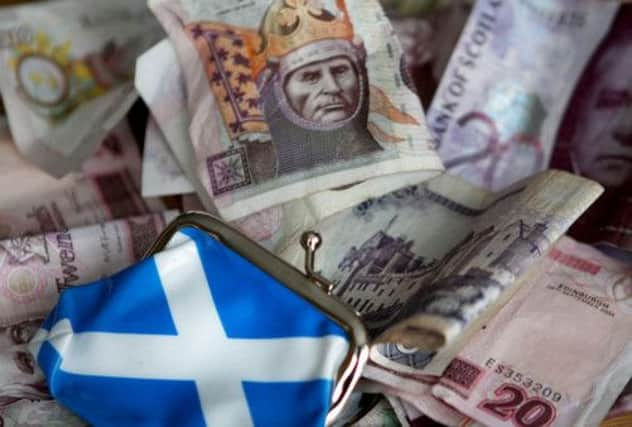Analysis: Economics powerful factor in deciding votes


In contrast, arguments that an independent Scotland would be a more equal country cut little ice with voters at all.
As reported in yesterday’s Scotland on Sunday, at the moment the No side is 17 points ahead in referendum vote intentions. But the picture is transformed when voters are asked what they would think if they were convinced they would be £500 better off under independence. As many as 47 per cent say that then they would support independence while just 37 per cent indicate they would be opposed.
Advertisement
Hide AdAdvertisement
Hide AdEqually, people’s current vote intentions clearly depend a great deal on what they believe the economic consequences of independence would be. No less than 85 per cent of those currently intending to vote Yes think independence would be good for Scotland’s economy, while 88 per cent of No voters believe it would be bad.
Arguments about whether independence would ensure that Scotland was a more equal society, and avoid such policies as the ‘bedroom tax’, appear to matter far less. Just 52 per cent of Yes voters think an independent Scotland would be less unequal while only 39 per cent of No voters believe it would be more unequal.
If the Yes side can win the economic argument then Alex Salmond should be able to lead his country to the promised land of independence. But people will have to be convinced there would be an extra £500 in their own pockets, not £500 in that of their less well-off neighbour.
Then, however, comes the less welcome news for the Yes side. First, it is currently losing the economic argument. Only just under a third felt independence would be good for Scotland’s economy while nearly half feel the consequences would bad.
Second, it will probably not be enough simply to convince voters they will not lose out. When asked what their view would be if they felt independence would not make any difference to them financially, opponents still outnumber supporters by 44 per cent to 39 per cent. Whereas the No side just needs a no-score draw on the economy, the Yes side requires a good home win.
Third, voters are seemingly more sensitive to the downside risks of independence than the upside benefits. Support for independence falls to just 18 per cent when respondents are asked how they would feel if they thought they would be £500 worse off.
Thus whereas the prospect of being better off sees support for independence increase by just eight points, the possibility of being worse off results in as much as a 21 point drop.
In short, if the Yes side was to lose the economic argument badly it could find itself on the end of a defeat that did serious long term damage to any future prospects of independence. The stakes during the next 12 months are high.
• John Curtice is professor of politics at Strathclyde University